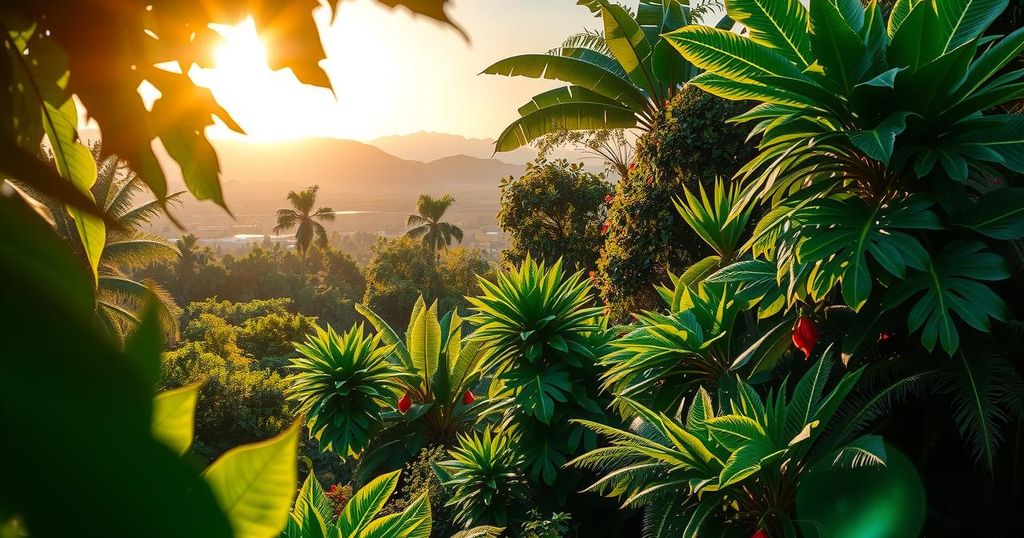Ecuador’s Presidential Elections: A Pivotal Moment for the Amazon and Indigenous Rights

The presidential elections in Ecuador have set the stage for a crucial runoff on April 13, 2023, amid pressing crises. Candidates Daniel Noboa and Luisa González both support extractivism, raising alarms among Indigenous movements advocating for Amazon protection. The Indigenous movement, although only securing 5.24% of votes, remains a pivotal force that could determine the election’s outcome and the future of environmental politics in the nation.
On February 9, 2023, Ecuador held presidential elections amid a multifaceted crisis involving political, economic, social, and security challenges. With a runoff scheduled for April 13, the outcome will significantly influence the future of the Ecuadorian Amazon. Candidates Daniel Noboa and Luisa González, who have both supported oil drilling and extractive industries, face scrutiny from Indigenous movements advocating for environmental protections.
President Daniel Noboa, securing 44.6% of the votes, has experienced a tumultuous presidency characterized by militarization and human rights abuses, with violent crime rates soaring under his governance. Despite measures such as the military’s involvement in national security, Ecked with increased state violence leading to tragic incidents, including forced disappearances and extrajudicial killings, there remains heightened public dissent.
Concurrently, Luisa González, representing the left-leaning Revolution Citizen party and garnering 44.02%, is affiliated with former president Rafael Correa’s legacy. Although she advocates for expanding social policies, her administration’s history reveals a tendency toward corruption and intensified extractivism, raising concerns about her commitment to safeguarding Indigenous rights amidst growing socio-environmental problems.
The Indigenous movement, led by Leonidas Iza and achieving 5.24% of the votes, now stands as a vital force, poised to influence the election’s outcome. Historically, Indigenous mobilizations have been pivotal during Ecuador’s political upheavals, and their support could determine which candidate prevails, especially given both Noboa and González’s alignment with extractive policies.
The upcoming election will see the Indigenous movement contemplating its strategy. Whether to remain neutral, support a candidate with conditions, or advocate for a null vote as a means of expressing discontent with both candidates reflects a critical juncture. Ultimately, the decisions made will significantly impact the continued fight against extraction in the Amazon and climate justice in Ecuador.
The February elections in Ecuador highlight the intersection of environmental, political, and social crises, with significant implications for the Amazon. The predominant support of both candidates for extractivism illustrates a shared complicity in jeopardizing Indigenous rights. The Indigenous movement’s strategic response in the upcoming runoff may prove decisive in shaping the country’s direction and advancing climate justice initiatives.
Original Source: amazonwatch.org






